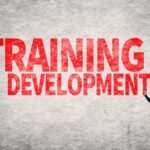Building a Strong Employer Brand: HR’s Impact on Recruitment and Retention
In today’s competitive job market, attracting and retaining top talent has become a critical challenge for organizations. A strong employer brand can make all the difference in successfully attracting qualified candidates and fostering employee loyalty. Human Resources (HR) professionals play a vital role in building and nurturing an employer brand that reflects the organization’s values, culture, and opportunities. In this blog post, we will explore the impact of HR on recruitment and retention and discuss strategies for building a strong employer brand.
- Define and Communicate Your Employer Value Proposition:
The first step in building a strong employer brand is to define and articulate your employer value proposition (EVP). This is the unique set of benefits, values, and opportunities that differentiate your organization from others in the job market. HR professionals should collaborate with key stakeholders to identify and communicate the EVP, highlighting the organization’s mission, culture, career development opportunities, work-life balance, and any other factors that make it an attractive place to work.
- Enhance the Candidate Experience:
The recruitment process is an opportunity to showcase your employer brand and create a positive candidate experience. HR professionals should ensure that the recruitment process is transparent, efficient, and respectful of candidates’ time. Effective communication, prompt feedback, and personalized interactions can leave a lasting impression on candidates, regardless of the outcome. A positive candidate experience, even for those who are not hired, can contribute to a strong employer brand and positive word-of-mouth.
- Foster Employee Engagement and Advocacy:
Engaged employees are valuable ambassadors for your employer brand. HR professionals should focus on fostering employee engagement through initiatives such as regular feedback, opportunities for growth and development, recognition programs, and a positive work environment. Engaged employees are more likely to speak positively about their organization, recommend it to others, and actively contribute to building a strong employer brand.
- Invest in Learning and Development:
A strong employer brand attracts candidates who are eager to learn and grow professionally. HR professionals should invest in learning and development programs that empower employees to enhance their skills, stay up to date with industry trends, and advance their careers within the organization. By offering meaningful development opportunities, HR can attract and retain top talent, while also strengthening the employer brand as a place of continuous learning and growth.
- Emphasize Diversity and Inclusion:
Diversity and inclusion are key components of a strong employer brand. HR professionals should implement strategies to attract a diverse pool of candidates and create an inclusive work environment. This involves promoting fair and unbiased recruitment practices, providing equal opportunities for career advancement, and fostering a culture that values diverse perspectives. An inclusive workplace not only enhances the employer brand but also leads to better business outcomes and innovation.
- Leverage Social Media and Online Platforms:
In today’s digital era, HR professionals can leverage social media and online platforms to amplify their employer brand. Develop a strong presence on platforms like LinkedIn, Glassdoor, and company websites to showcase the organization’s culture, employee testimonials, and success stories. Encourage employees to share positive experiences on their social media networks and actively engage with potential candidates online. This digital presence can significantly enhance your employer brand and attract top talent


































